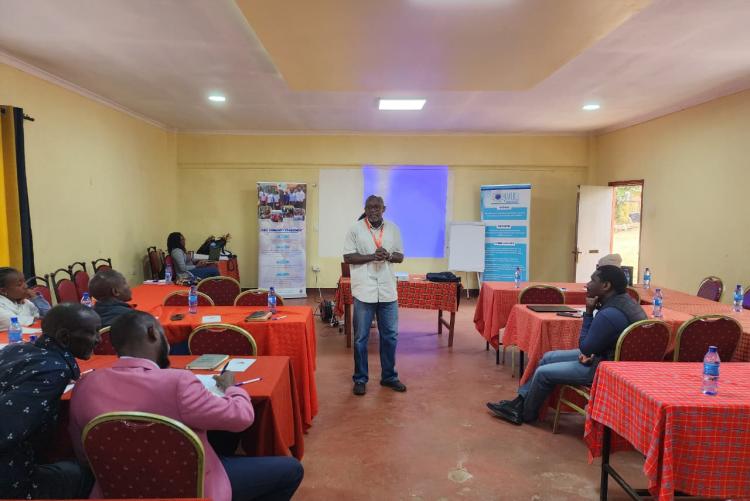Loitokitok, 12th September 2025 – The second day of the Zoonoses and Febrile Illness (ZAFI) project co-creation workshop, hosted by the KAVI-Institute of Clinical Research (KAVI-ICR), focused on strengthening community participation through the formation of a Community Advisory Board (CAB).
At the close of Day One, participants drawn from diverse sectors, including doctors, nurses, clinical officers, medical officers, veterinarians, community leaders, and Community Health Promoters (CHPs), formed a CAB to anchor the partnership between researchers and the Loitokitok community.
Day Two was officially opened by the ZAFI Project’s Country Principal Investigator, Professor Omu Anzala, who began with a recap of Day One discussions—particularly the challenges faced in Loitokitok around febrile illnesses and the importance of working collectively with the community to find practical solutions.
“Communities are not just research participants; they are partners in finding solutions. For us to address the challenges of febrile illnesses effectively, we must build trust, listen to community voices, and co-create interventions that work in their context,” said Prof. Anzala.
Participants were then taken through a detailed presentation by Roselyne Malogo, who outlined the formation, roles, and responsibilities of a CAB. She highlighted that the success of any clinical research depends heavily on the active involvement of communities, ensuring trust, mutual understanding, and protection of participants’ rights.
Key highlights from the session included:
- CAB Membership & Selection: Members are drawn from diverse groups within the community, with gender balance and representation of youth, faith-based groups, and other stakeholders considered essential.
- Qualities of CAB Members: Approachability, good listening skills, respect, trustworthiness, and effective communication were identified as key traits.
- Roles & Responsibilities: CAB members will voice community concerns, participate in protocol reviews, support recruitment and retention strategies, and engage in community education and advocacy.
- Terms of Reference: Members commit to confidentiality, regular attendance, and a maximum of two consecutive three-year terms.
The vision of the CAB is to foster a research-knowledgeable community that collaborates with researchers to ensure culturally sensitive, ethical, and impactful research outcomes. This underscored KAVI-ICR’s long-standing commitment to Good Participatory Practice (GPP) and its dedication to engaging local communities as equal partners in clinical research.
Funding Acknowledgement
This research was funded by the NIHR (NIHR156365) using UK international development funding from the UK Government to support global health research.
- Log in to post comments

